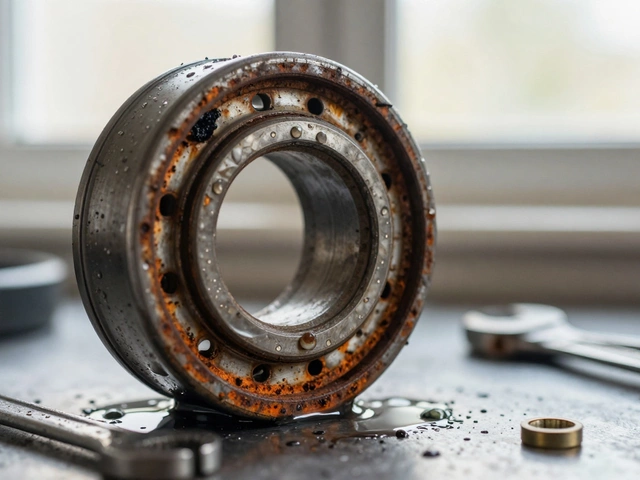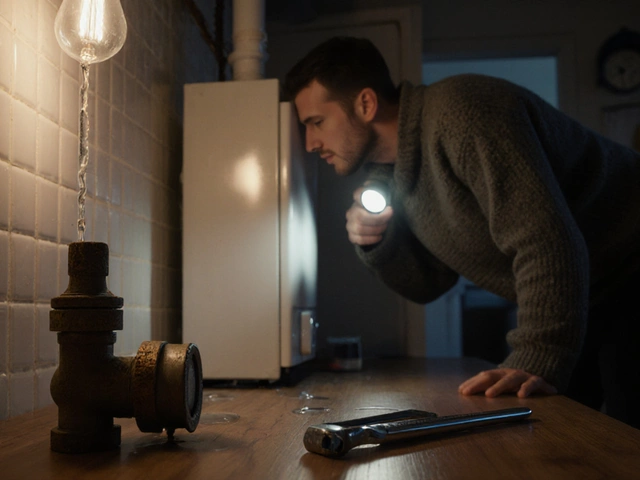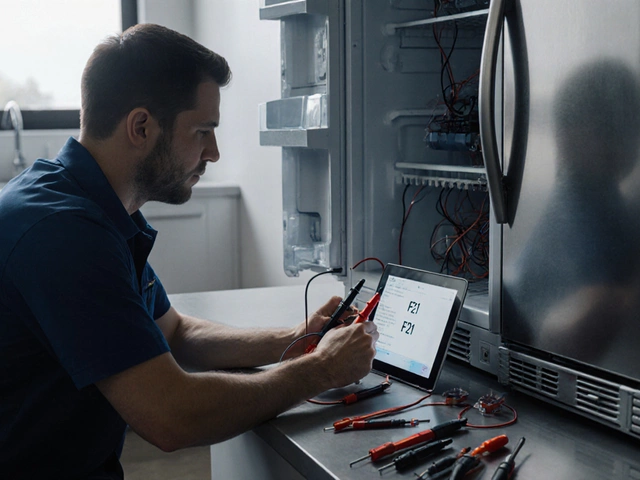Troubleshooting Cold Showers: Common Hot Water Problems and Solutions
January 18 2025Fridge Problems: How to Spot, Fix, and Prevent Common Issues
When your fridge starts acting up, it feels like the whole kitchen stops working. Food spoils, bills go up, and you’re left wondering if you can fix it yourself or need a pro. The good news is most fridge hiccups have simple causes you can check before you dial a repair service.
Why Your Fridge Might Not Be Cooling
First, make sure the fridge is plugged in and the circuit breaker hasn’t tripped. It sounds basic, but a loose plug or a blown fuse is the most common reason a fridge stops working.
If the power’s fine, look at the temperature settings. Many people set the dial too low, thinking a colder fridge means fresher food. In reality, the freezer needs to stay around -18°C (0°F) and the fridge section around 4°C (40°F). Adjust the knobs and give the unit a few hours to settle.
Next, check the door seals. Grab a piece of paper, close the door on it, and see if you can pull it out easily. A broken or dirty seal lets warm air in, making the compressor work harder or stop altogether. Clean any grime with warm soapy water, and replace seals that are cracked or warped.
Dust inside the condenser coils is another sneaky culprit. Over time, dust builds up on the coils at the back or underneath the fridge, reducing cooling efficiency. Unplug the unit, pull it away from the wall, and use a vacuum brush or a soft brush to clean off the dust. This quick step often restores proper cooling.
If your fridge is making weird noises, it could be a fan problem. The evaporator fan circulates cold air inside the fridge, while the condenser fan cools the coils. A blocked fan or a faulty motor can stop the airflow. Listen for a humming or rattling sound. If you’re comfortable, remove any debris and spin the fan blades by hand. If they don’t move freely, the motor likely needs replacement.
Finally, look for frost buildup in the freezer. Ice can block the air vents that move cold air to the fridge compartment. Defrost the freezer manually by turning the fridge off and letting the ice melt, then wipe it dry before turning it back on.
When to Call a Professional
Some problems are best left to trained engineers. If you notice water leaking inside the fridge, it could be a blocked defrost drain or a broken water inlet valve. These issues involve disassembly and proper sealing, so a professional is safer.
Repeated compressor cycling (the fridge turning on and off frequently) may indicate a refrigerant leak or a faulty pressure sensor. Handling refrigerant requires certification, and DIY attempts can be dangerous.
Electrical faults, like a burnt-out start relay or a broken thermostat, also need a qualified gas engineer. Trying to replace these parts without the right tools can cause further damage or even a fire.
In short, if you’ve checked power, settings, seals, coils, fans, and frost and the fridge still won’t cool, it’s time to call a specialist. A qualified repair service can diagnose the exact fault, order the right part, and get your fridge back to normal quickly.
Keeping your fridge in top shape doesn’t have to be a headache. Simple regular maintenance—cleaning coils, checking seals, and defrosting when needed—will keep the cooling system running smoothly and save you money on repair bills. Next time a fridge problem pops up, run through these checks first. You’ll often solve the issue without a callout, and if you do need a pro, you’ll at least know what’s wrong and can explain it clearly.
 19 Jun
19 Jun
Fridge Repair: What Usually Fails in a Fridge?
Fridges break down more often than most people realize, and usually it's the same parts that cause the headache. This article breaks down the most common fridge failures, explains warning signs, and gives practical advice to help spot and even prevent future problems. You'll learn what goes wrong, why it happens, and a few clever tips for keeping your fridge running smoothly. Whether your food's getting warm or you're hearing weird noises, there's something here for every frustrated fridge owner. Save time, money, and maybe a week's worth of groceries by knowing what to look for.
Read More...



